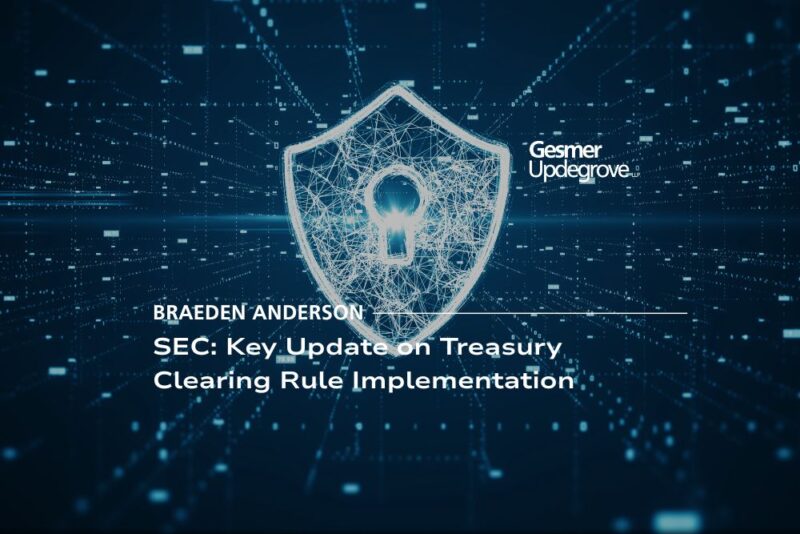By Aaron Kriss
Start-ups need a great idea or business proposition to succeed, but they also need top talent. Attracting talent to an exciting new enterprise is one thing, but convincing the best and brightest to stick around for the long run is another matter entirely. Private companies can provide this in many ways, but two prominent forms are stock options and grants of restricted stock.
Stock Options
Stock options give the employee the right to purchase corporate stock at a fixed stock price at some point in the future. Stock options that have reached their vesting date, therefore, deemed fully vested in accordance with a vesting schedule, are exercisable immediately. Unvested options will vest over time or upon reaching certain performance benchmarks specified in the vesting schedule, creating additional incentives for the employee to stay at the company and maximize performance.
There are two types of stock options:
STATUTORY INCENTIVE STOCK OPTIONS (ISOS)
- ISOs can only be issued to employees.
- An ISO’s exercise price (commonly referred to as its “strike price”) must be equal to or greater than the fair market value of the underlying shares as of the date of the option grant (or 110% of fair market value in the case of employees who also own 10% or more of the corporation)
- The amount of ISOs first exercisable in any year cannot exceed $100,000 for any recipient. When an ISO is exercised, there is no income tax recognition (but employees may be subject to Alternative Minimum Tax (AMT) depending on individual tax circumstances). After exercise, if the employee holds the stock for more than one year from exercise, and two years from the date of the option grant, the resulting gain will be taxed as long-term capital gain (on the delta between the sales price and the exercise price). Any earlier disposition of the ISO stock will result in ordinary income. Federal long-term capital gains taxes are assessed at a much lower rate (20%, plus a 3.8% net investment income tax that applies in most cases) than ordinary income taxes (top marginal rate of 37%).
OPTIONS THAT DO NOT QUALIFY AS ISOS (“NON-QUALIFIED OPTIONS” OR NSOS)
- NSOs have no restrictions and can be issued to anyone, at any strike price, and at any underlying value. However, any NSO issued with a strike price below fair market value will be subject to the draconian tax regime on deferred compensation known as Internal Revenue Code Section 409A. Stock options granted below fair market value can trigger tax consequences, including current taxation of the option and a 20% excise tax. It’s possible to have an NSO with a low strike price and still be compliant with 409A, but the result is a very restrictive option that is likely not very attractive to employees or other service providers.
- When an NSO is exercised, it is subject to federal income tax on the delta between the fair market value at the date of exercise and the strike price. If the stock is held more than one year from the date of exercise, the resulting gain is long-term capital gain (on the difference between the sale price and the fair market value from the date of exercise); otherwise, the gain will be taxed as ordinary income.
Neither ISOs nor NSOs are taxed at the time of grant.
Restricted Stock
Restricted stock gives the employee or other service provider actual shares in the company. The shares are often restricted—for example, they cannot be transferred. Grants of fully vested restricted stock are taxable to the recipient on the date of grant in the amount of the stock’s fair market value.
When grants of restricted stock are unvested:
- The stock will be forfeited back to the company if the vesting provisions are not met (i.e., if the service provider leaves the company, or if performance targets are not satisfied).
- There is no tax at grant and the stock grant becomes taxable over time as vesting occurs.
- The amount of tax is measured by the fair market value of the stock at the time of vesting, and the income is taxed as ordinary income.
This tax treatment can be disastrous for employees of growing companies, as service providers may be left with a hefty tax bill as the company grows and increases in value over time. Understanding the tax implications of stock compensation is critical to avoid unexpected tax liabilities.
To mitigate this outcome for tax purposes, recipients of restricted stock can make a so-called 83(b) election. The election results in the service provider paying federal income tax (at ordinary income rates) on the fair market value of all the shares in the year of the grant, including unvested shares.
- Upsides: As the shares vest there is no further tax, and any subsequent disposition of the shares should be taxed as long-term capital gain (provided the shares are held longer than one year).
- Risks: Tax will be paid in the year of grant, and if the value of the shares goes down or the unvested shares are ultimately forfeited, the taxpayer cannot claim a loss.
In most cases the up-front tax cost is minimal for employees of start-up companies since the early-stage value of the shares is low, making the 83(b) election an attractive choice.
The Bottom Line
Stock options and restricted stock are both great tools to incentivize employees and service providers. Options, particularly ISOs, can be attractive because of the potential for tax deferral (though in practice, most option recipients wait to exercise until right before a liquidity event, and thereby precluding favorable tax treatment).
Restricted stock removes the requirement for the service provider to dip into his/her own pocket to pay for the strike price, but comes with a current-year income tax liability. In most cases, companies will formulate incentive stock plans to allow for grants of both options and restricted stock, giving the company flexibility and the ability to offer employees different alternatives.
QUICK NOTE ON RESTRICTED STOCK DERIVATIVES
Restricted stock grants should not be confused with “Restricted Stock Unit” plans (RSUs), transaction bonus plans, or phantom stock plans. At a high level, these incentive programs grant employees or other service providers the right to payment—either in cash or equity compensation or a combination of both—upon the occurrence of certain events equivalent to what they would receive had they owned actual stock in the corporation. Payments under these plans are always taxed as ordinary income to the recipient and need to be carefully structured to avoid tripping up 409A.
Interested in getting in touch with Aaron Kriss?
Fill out the form below and he will be in contact with you shortly!
Check out some of our latest posts…
- PREDICTION MARKETS, SPORTSBOOKS, AND SELIG’S CFTC: A JURISDICTIONAL INFLECTION POINT

- SEC CHAIR OUTLINES PLAN TO BRING CLARITY TO DIGITAL ASSET OVERSIGHT

- CRYPTO TAX: YEAR-IN-REVIEW

- SEC Chairman Paul Atkins Announces Updates to Wells Process

- SEC Policy Update: Coordinated Review of Settlements and Waivers Restored

- SEC Provides Key Update on Treasury Clearing Rule Implementation

